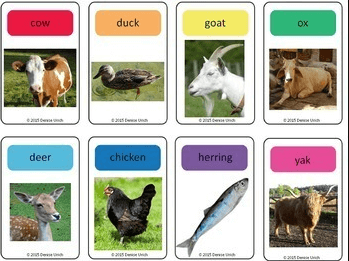As the Ledger went to press, the U.S. Open tennis tournament was in full swing at the USTA Billie Jean King National Tennis Center in Flushing Meadows, N.Y. This year’s Open, which kicked off on August 25 and comes to a close on Sept. 8, features a number of Jewish players from around the world – as well as kosher food and a few “frum” (Orthodox) ball boys and girls.
According to kippah-wearing ball boys Eric Wietschner and Moshe Brum, “There are approximately 10 frum ball boys. The U.S. Open is very accommodating, both in terms of scheduling and about wearing kippot on the job.” Which left one fan, Jeremy Posner of Manhattan, to playfully wonder, “Why aren’t they issued Ralph Lauren kippot?” The Ralph Lauren Polo logo is prominently displayed on shirts and shoes of all ball boys and girls.
This year’s singles and doubles men’s draw featured 18-year-old Noah Rubin of Merrick, Long Island in N.Y. Rubin won the Wimbledon juniors tournament in July. He received a wild card to play in the U.S. Open main draw after winning the Boys Junior National Tennis Championship in Kalamazoo, Mich.
Despite losing his singles match to 66th ranked Frederico Delbonis of Argentina (6-4, 6-3, 6-0), and his doubles match, with partner Stephan Kozlov, to Jared Donaldson and Michael Russell (6-2, 6-7, 6-4), the good-natured Rubin remained proud and confident. In a post-match press conference, Rubin said, “I learned that I can definitely compete with these guys at the best level. I’m just getting used to the atmosphere, getting used to being out there with the top players in the world.”
Rubin, who attended religious school and celebrated his bar mitzvah at the Merrick Jewish Center, collected tennis rackets to donate to the Israel Tennis Center for his “mitzvah project.” “I want people to know I’m Jewish and I like to represent the Jewish people,” he told the Ledger. Though he has not yet been to Israel, “I will be going!” he says, noting that his sister, Jessie, who served as vice president of Hillel and captain of the tennis team during her student years at Binghamton University, has been to Israel twice – once on a Birthright trip, and once on a JNF service trip. Though he’s missed the first week of classes, Rubin will now head for Winston-Salem, N.C. to begin his freshman year at Wake Forest University.
Four days before the start of play, Rubin had the opportunity to go head to head with the world’s number one player, Novak Djokovic, at an exhibition match benefitting New York’s John McEnroe Tennis Academy, where Rubin previously trained. Likewise, Diego Schwartzman, 22, a Jewish tennis player from Buenos Aires, Argentina, ranked #79 in the world, faced Djokovic in the first round of the Open in Arthur Ashe Stadium. While Djokovic beat Schwartzman 6-1, 6-2, 6-4, he hugged the Argentinian following the match and offered him both a compliment and some advice. “Diego is a talented player; very quick on the court. He has to work on his serve a little bit more,” he said. “I just wish him all the best for the future, you know, to keep on working. He’s talented. He has good potential to be a higher-ranked player.”
For Canadian Sharon Fichman, 23, ranked #112 for singles and #76 for doubles, the road to the U.S. Open was a tough one. After injuring both her ankle and knee in the months leading up to the tournament, she recently underwent surgery to repair a meniscus tear. Still, she managed to play both singles and doubles matches – losing both in the first round. “I will get there. It will just take time, effort and patience,” she said.

Israelis in the main draw for singles include Dudi Sela, Shahar Peer and Julia Glushko. In Sela’s first round match, the 83rd-ranked player battled back to defeat Argentina’s Carlos Berlocq. After losing the first set in 17 minutes, Sela came back to win 1-6, 6-3, 6-2, 7-5. He lost in the second round against seventh seed Grigor Dmitrov of Bulgaria, 6-1, 6-2, 6-2. Sela now turns his attention to the Davis Cup World Group play-offs against Argentina, to take place Sept. 12-14 in Sunrise, Fla. Israel’s Davis Cup team consists of Sela, Amir Weintraub, Andy Ram, Jonathan Erlich and alternates Tal Goldengoren and Bar Botzer. The match was scheduled to be hosted by Israel, but was moved to Florida given the recent situation in Israel.
Shahar Peer, ranked #155, defeated Amanda Konta in the first round, 6-2, 6-3, but lost in the second round to Mirjana Lucic-Baroni of Croatia, #121, 6-7 6-3, 6-2. Julia Glushko, ranked #101, lost her first round match to American Madison Brengle, 6-3, 6-2.
Sportswriter Sandra Harwitt, who has covered more than 70 Grand Slam tennis tournaments for such publications as espn.com, Tennis Magazine and The New York Times, was on hand to sign copies of her new book, The Greatest Jewish Tennis Players of All Time. Harwitt notes the presence of other Jewish players in this year’s U.S. Open, including American Scott Lipsky and Camila Giorgi of Italy.
Among those included in Harwitt’s book – and a spectator at this year’s Open – is British Jewish tennis star Angela Buxton, now 80. In 1956, Buxton reached the Wimbledon singles finals, and won the French Open and Wimbledon doubles championships, teaming up with Althea Gibson, who was the first African American to cross the color line of international tennis. The remarkable story of their partnership is recounted in the recent movie, Althea and Angela: A Perfect Match, and the book, The Match: Althea Gibson & Angela Buxton: How Two Outsiders – One Black, the Other Jewish – Forged a Friendship and Made Sports History.
Finally, tennis fans in search of a kosher hotdog, sausage, knish, pretzel, deli sandwich and the like need search no further than the Open’s Kosher Grill, located near court 17 and open for lunch and dinner every day but Friday night and Saturday.
(Source: http://www.jewishledger.com)






